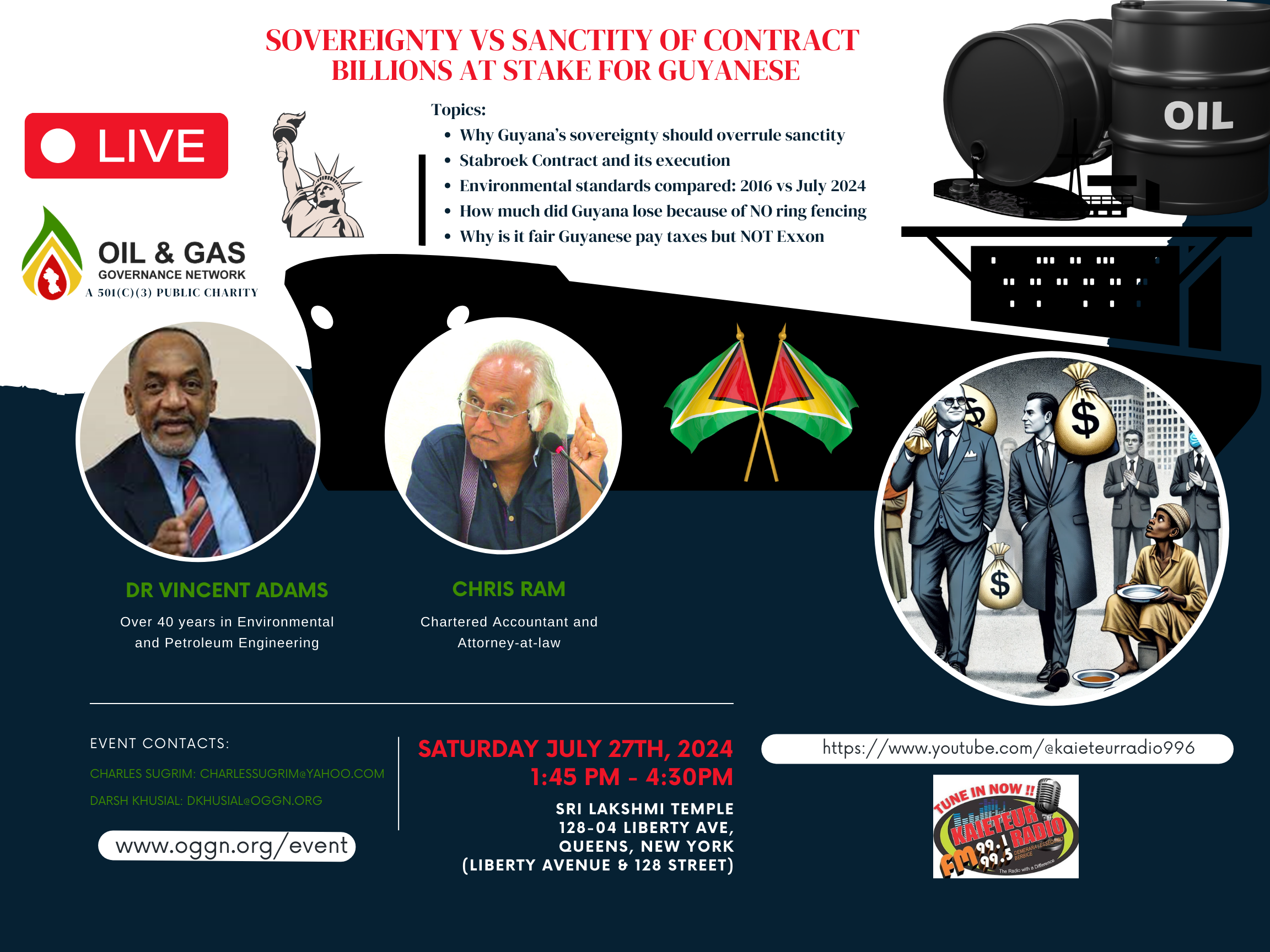
Opinion
Some nuances of conditional cash transfers
Professor Clive Thomas stimulated much discussion last week when he proposed the idea of a US$5000 per year cash transfer to Guyanese families. The fact that the proposal is open ended stimulated a lot of heated discussions on social media. Several claims were made: these payments will stimulate the money supply and therefore engender inflation;…
Tax credits would be a fair and equitable way to distribute our new oil wealth
The proposal by Professor Clive Thomas of the distribution of cash from the projected oil revenue to every Guyanese household caught me by surprise. With the proposed payout, there is every likelihood that the price paid for goods and services will invariably increase, thus reducing the real purchasing power to the beneficiary. Firstly, we need…
Guyanese, please let us join forces with the Govt. to make a better oil deal for us
I feel the coolness of the breeze that permeated the Guyana coastline from the letter penned by Chartered Accountant Nigel Hinds in the Kaieteur News of August 3. For this letter to be published just after we celebrated Emancipation Day seems very refreshing and applicable. Our Government should recognize, albeit their authority to govern our…
I was never assured by the gov’t of being re-engaged
An article in Kaieteur News (07-Aug-2018, ‘The Department of Energy will decide if it needs Dr Mangal’s expertise – Harmon’) gave the impression that I was “assured” by the government of being re-engaged. This is incorrect. I was never assured by the government of being re-engaged nor did I seek to convey this impression in…
All parties and private sector organizations should focus on renegotiation or rescinding of the 2% oil royalty
With both major parties wedded to the belief that they must be good ambassadors for Exxon’s Esso, the race to genuflect lower before Exxon, has already cost Guyana billions of dollars. Exxon’s Esso controls over eleven million acres in and around the prized Stabroek Block, including 6.6 million acres of the Stabroek Block. Guyana’s super…
My thoughts on Dr Mark Bynoe’s appointment at DoE
I was planning to write this week about the recent parliamentary debates over the role of the Bank of Guyana in the financial system and foreign exchange market. However, I will discuss the more recent appointment by President David Granger of the new head of the fledgling agency, the Department of Energy (DoE). There is…
Fortune favours the brave but Guyana’s politicians are cowards to ExxonMobil
It would take brave leadership for Guyana to overpower a giant. But such leadership seems lacking. As a result, Guyana may remain poor even with it tremendous wealth offshore. Chartered Accountant, Nigel Hinds said as much in a recent letter to the media. Hinds remains haunted by the existing Petroleum Sharing Agreement (PSA) that Guyana…






